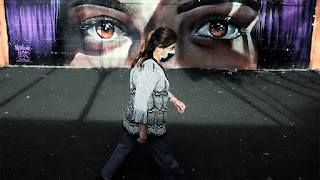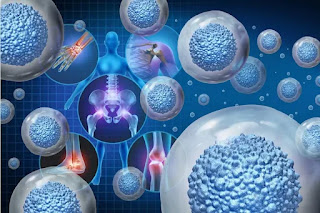Study suggests COVID-19 vaccination may be associated with short-term changes in usual menstrual cycle length
Study suggests COVID-19 vaccination may be associated with short-term changes in usual menstrual cycle length
Foundation
In 2021, unconfirmed reports that the CoV sickness 2019 (COVID-19) immunization or the SARS-CoV-2 contamination would influence period cycles started broad media inclusion and public interest, like a fast reaction from the United States (US) National Institutes of Health by supporting a SARS-CoV-2 disease and feminine wellbeing organization.
The antibody suspicion among the overall population and immunization hesitance among youths, kids, and ladies of regenerative age are presently increased due to worries and ridiculous data about the COVID-19 inoculation influencing conceptive wellbeing. Subsequently, another general wellbeing concern is the security of COVID-19 immunization for multiplication. In any case, there is still minimal methodical exploration on the impacts of the SARS-CoV-2 antibody or COVID-19 on feminine wellbeing, in spite of the developing public worries and suspicion in regards to the likely unfavorable regenerative impacts of COVID-19 and its immunization.
About the review
In the current work, the specialists inspected the connections between's COVID-19 immunization and SARS-CoV-2 contamination with changes in the average period highlights in pre-menopausal medical care laborers partaking in a functioning planned companion examination. Furthermore, they took a gander at the length of such modifications, expected varieties by immunization kind, and whether stress welcomed on by the pandemic (like changes in emotional well-being, trouble, or the territorial COVID-19 weight) was answerable for fluctuations in the typical period qualities.
The group tentatively followed 3,858 pre-menopausal females from the Nurses' Health Study 3 (NHS3) who dwelled in Canada or the US. They sent follow-up polls twice per year from January 2011 to December 2021 to these subjects. The medical caretakers likewise partook in valuable studies month to month and quarterly in regards to the SARS-CoV-2 pandemic from April 2020 to November 2021. In reviews acted in 2020 and 2021, respondents self-detailed their COVID-19 immunization status, history of SARS-CoV-2-positive tests, and antibody kind.
From pre-COVID benchmark information somewhere in the range of 2011 and 2016 and post-COVID information in late 2021, the researchers gathered data on the consistency and length of the flow monthly cycle. Additionally, the adjustments in monthly cycle routineness and not set in stone from pre-to post-COVID reports. The associations between 1) COVID-19 immunization and 2) SARS-CoV-2 disease and changes in feminine cycle highlights were assessed utilizing multinomial calculated or strategic relapse models.
Results
The review results demonstrated that with a middle subsequent length of 9.2 years, the middle age of the review volunteers at research inception and the fulfillment of the follow-up was 33 years, going from 21 to 51, and 42 years, going from 27 to 56, separately. The creators recorded 3,527 COVID-19 inoculations, i.e., 91.4%, and 421, i.e., 10.9%, SARS-CoV-2 diseases during follow-up.
Subsequent to controlling for conduct and sociodemographic qualities, ladies who had gotten SARS-CoV-2 inoculations had a more serious gamble of delayed periods than non-immunized ladies. Subsequent to considering the pressure brought about by the pandemic in the examination, these connections continued as before. Just in the underlying a half year following vaccination and across ladies whose periods were short, long, or sporadic predecessor to immunization the COVID-19 immunization was connected to a change to longer feminine cycles. By and large, the specialists found that ladies with long, short, or unpredictable pre-immunization periods were bound to encounter a transient, i.e., under half year, expansion in common feminine cycle length subsequent to getting the COVID-19 immunization.
Adenovirus-vectored and courier ribonucleic corrosive (mRNA) COVID-19 immunizations were connected with this feminine cycle change, highlighting shared pathways. Further, social changes and stress related with the COVID-19 pandemic didn't make sense of the relationship between SARS-CoV-2 immunization and modifications in feminine wellbeing.
Curiously, SARS-CoV-2 disease was not connected with modifications in the ordinary period highlights. As indicated by this induction, the transient effect of COVID-19 immunizations might differ from the resistant response to SARS-CoV-2 contamination, which appears to be more far and wide and tissue-particular than those related with antibodies. In any case, given the concentrate's modest number of impacted subjects, this finding ought to be deciphered cautiously.
Ends
The review discoveries portrayed that the SARS-CoV-2 immunization may be connected to brief adjustments in the length of the normal period, particularly in ladies whose cycles were long, short, or unpredictable prior to inoculation. These discoveries feature that following feminine wellbeing all through immunization clinical studies is so urgent.
Additionally, the ebb and flow discoveries underscore the requirement for focusing harder on orientation based abberations in antibody response, especially considering the sending of COVID-19 immunization supporter shots, which will introduce one more opportunity to explore this critical point. The scientists referenced that future examinations ought to assess the conceivable natural cycles hidden the relationship between SARS-CoV-2 immunization and modification in the period.
Moreover, the group accepted that the ongoing review has suggestions for clinicians, COVID-19 immunization engineers, and researchers in better grasping the potential


.webp)

Comments
Post a Comment